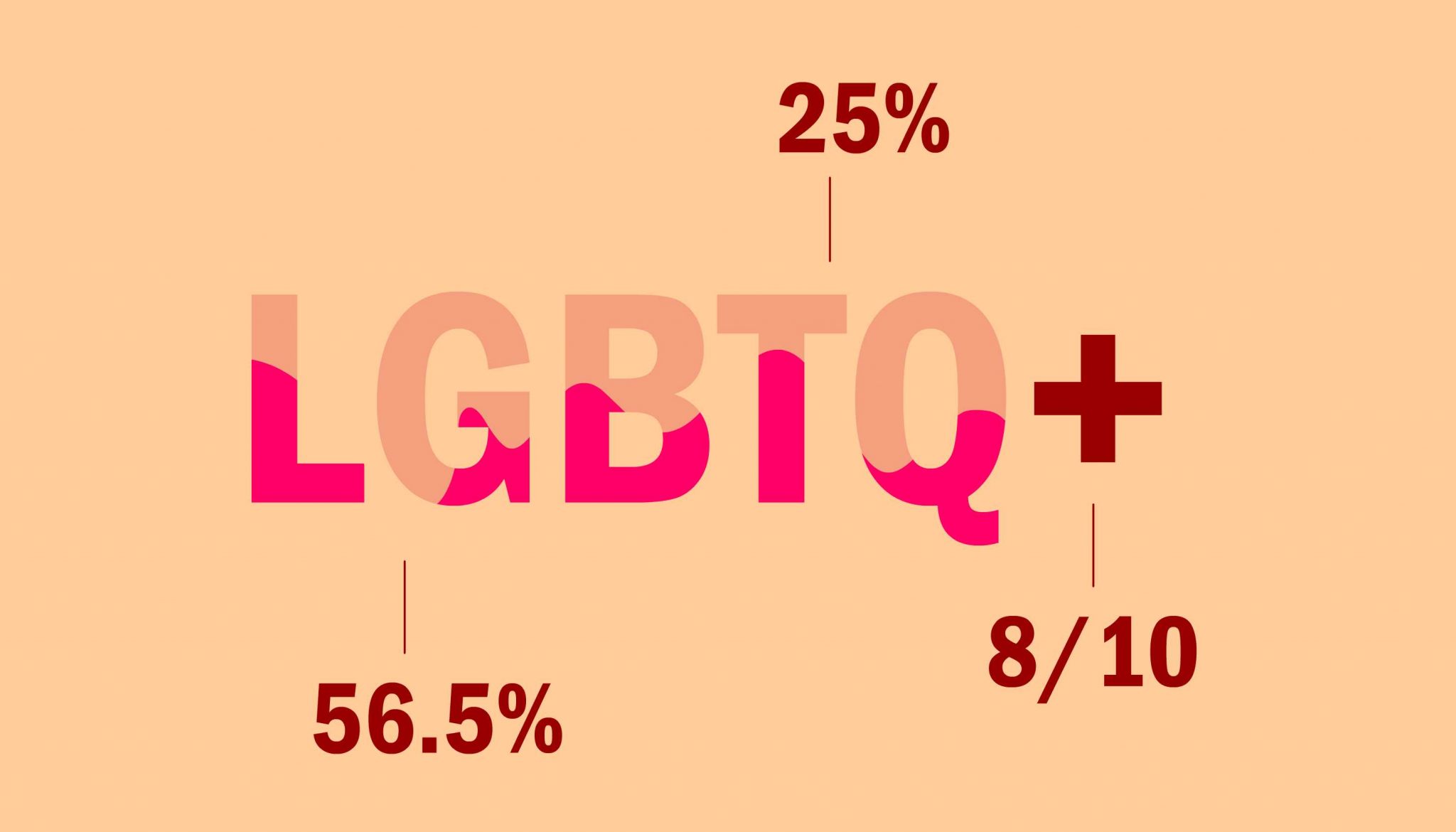Outlook Study reveals prevalent challenges within LGBTQ+ community


The Outlook Study, which was recently conducted by researchers from Wilfrid Laurier University, along with different community partners, looked at the various issues that members of the LGBTQ+ community face in Waterloo Region.
The team undertook a large scale survey on individuals who identified as LGBTQ+ and were at least 16 years of age, living in the Waterloo region.
A pair of Laurier undergraduate students, Kathy Luu, a fourth-year health sciences major, and Sara Ashtiani, a fifth-year biology and psychology major, worked with the data collected from the survey to complete a fact sheet on the violence and discrimination LGBTQ+ communities face in the region.
“The Outlook study is one of the largest needs assessment surveys conducted to date in Canada,” Ashtiani said. “It assesses LGBTQ+ needs for folks in the Waterloo Region.”
“The study assessed community belongingness, violence and discrimination, safe spaces and avoided places, social support from loved ones, access to health care and many other issues.”
“If you don’t understand something, always ask questions. Don’t make assumptions. Always be curious. Don’t judge, don’t make stereotypes, don’t put people in a box,”
The students worked on the fact sheet with a community partner from the Rainbow Community Council, called ‘Breaking the Silence,’ which focuses on violence and discrimination.
“We had a few data analysts that worked on it with us. We went through the survey and picked out each question that might be of interest to the community partner and how this can bring change into the community,” Luu said.
“Then we just compiled the questions and the numbers together and worked with a graphic designer to figure out how to properly design this so that everyone could understand.”
The results from the study were concerning, to say the least.
The fact sheet revealed that 92 per cent of the respondents have pretended to be heterosexual and 86 per cent of transgender respondents have tried to pass as non-transgender.
42 per cent had to move away from their loved ones due to their gender identity and 71 per-cent were verbally abused because of their sexual orientation.
“Over 90 per cent of people who completed the survey said that they heard it wasn’t normal to not be straight while they were growing up. That one really stood out to me because the number was extremely high,” Ashtiani said.
“I wasn’t really surprised, but I didn’t expect it to be that high for everyone. More than 500 people completed the survey so that 90% is a high number.”
This Outlook Study is crucial to our society because it’s evident that the issues surrounding the LGBTQ+ community haven’t faded away.
These numbers should help raise awareness and it’s important to take action instead of simply acknowledging the problem.
Ashtiani mentioned that improved education will go a long way towards making change.
“There isn’t enough education on these issues. If you look at the sex education curriculum when we were younger, it was all heteronormative and not inclusive of diverse gender identities. Everything was this or that, boy or girl, man with a woman. If we start educating people at a younger age, that would be great.”
“You never know what someone is going through in any case. I think another part of that is sticking up for people who find it harder to speak up. It’s important for people who are educated to not just be bystanders,” she added.
While Luu and Ashtiani are still working on their thesis, the Outlook Study has already highlighted major problems that exist for the LBGTQ+ community in Waterloo Region.
“If you don’t understand something, always ask questions. Don’t make assumptions. Always be curious. Don’t judge, don’t make stereotypes, don’t put people in a box,” Luu concluded.


